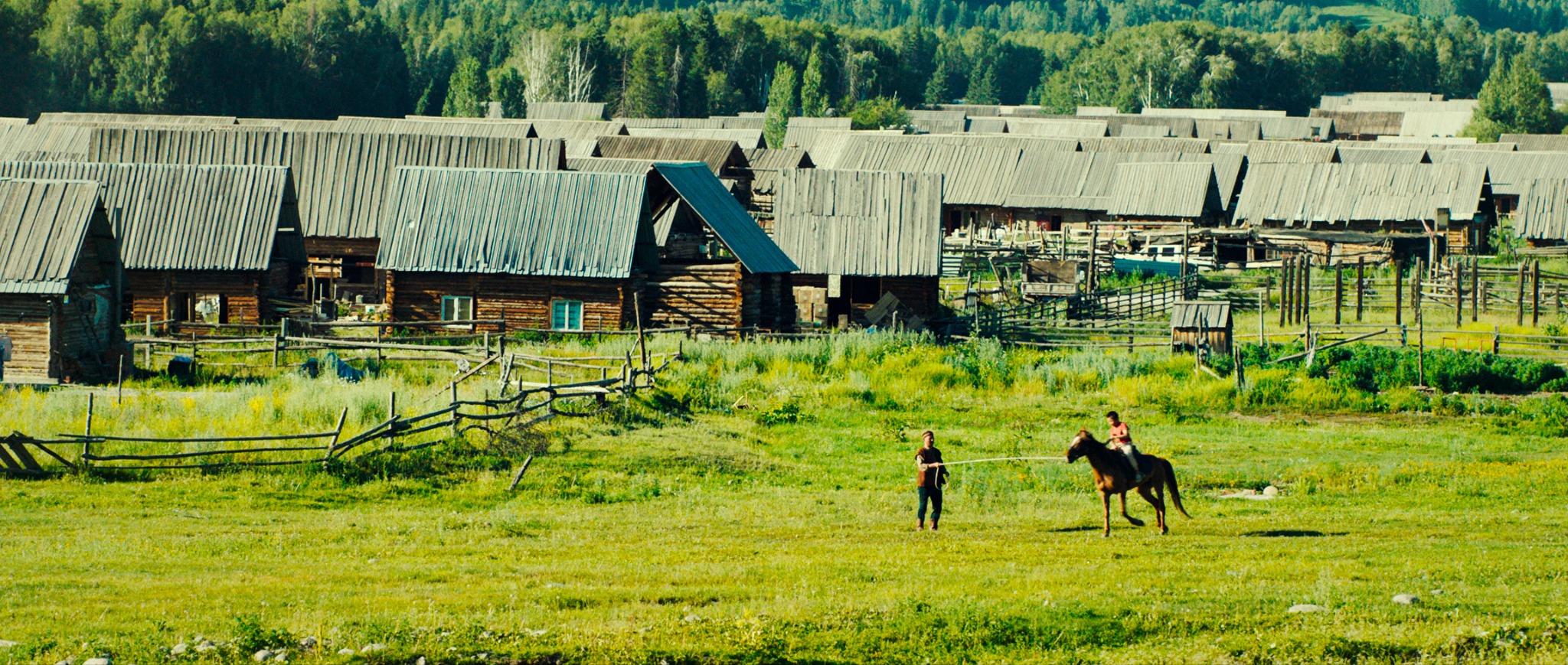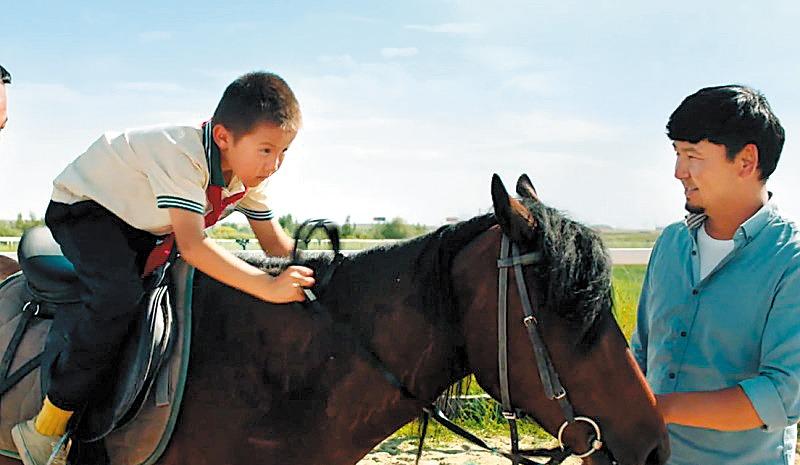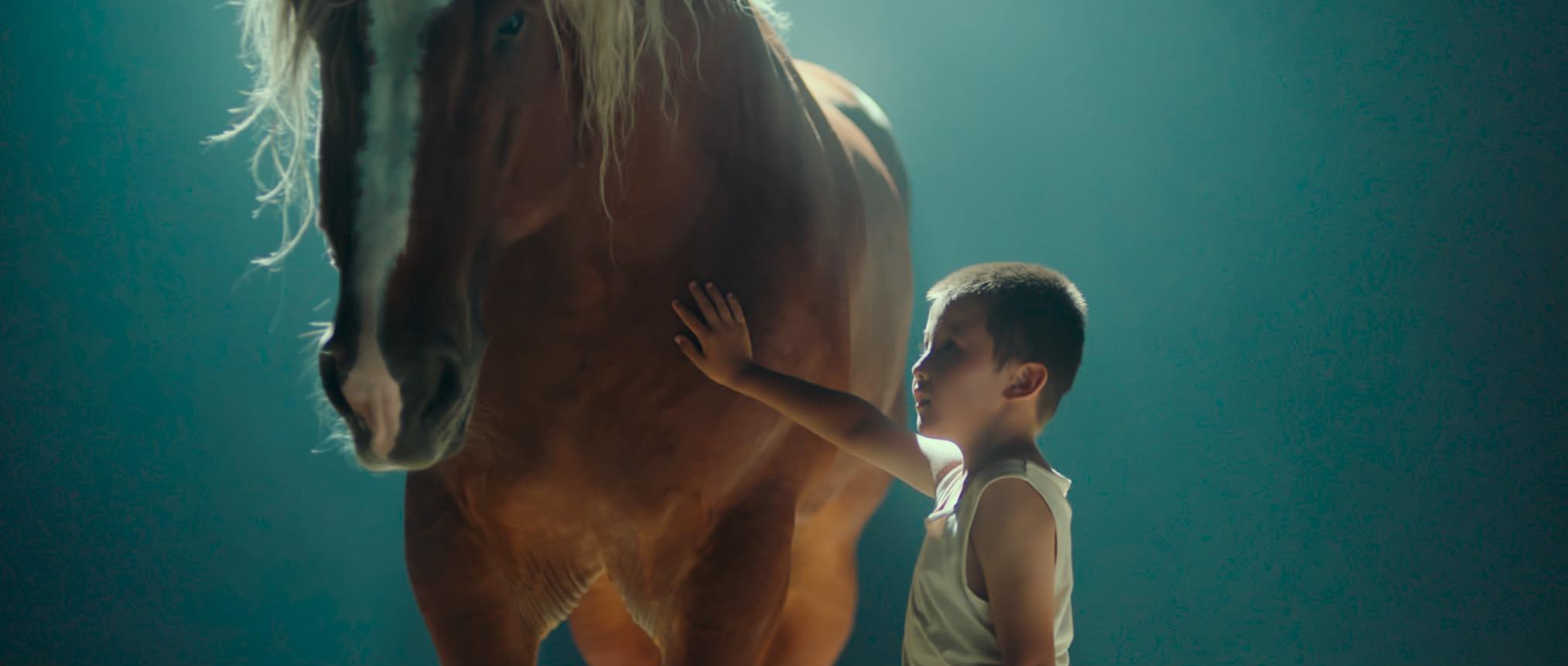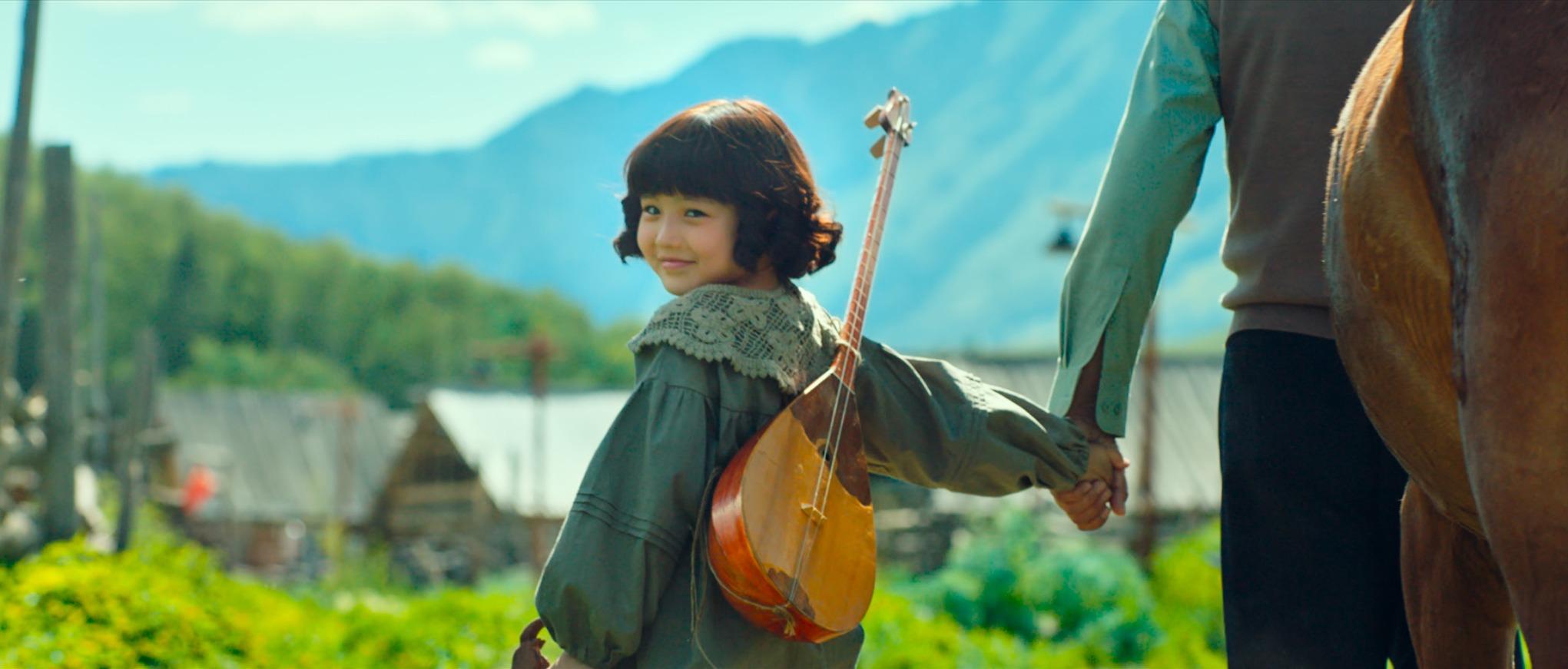Xinjiang director's debut feature enjoys immediate recognition and is testament to the perseverance he's shown in chasing his hopes and dreams, Xu Fan reports.
 The Little Horsewhip, a children's movie, is inspired by the news that Altay prefecture in the Xinjiang Uygur autonomous region has made equestrianism a regular course for students. (PHOTO PROVIDED TO CHINA DAILY)
The Little Horsewhip, a children's movie, is inspired by the news that Altay prefecture in the Xinjiang Uygur autonomous region has made equestrianism a regular course for students. (PHOTO PROVIDED TO CHINA DAILY)
While on a journey to find inspiration for a new film in late 2019, director Shapkat Murat was surprised, and proud, to find that equestrianism had become a regular course for the young students in Altay prefecture in northern Xinjiang Uygur autonomous region.
Having previously pursued studies at the School of Fine Art in the Beijing Film Academy, Shapkat says he knows how costly it can be for urban children who wish to learn to ride.
I think the children in Xinjiang lead happy lives, and the region also places a great emphasis on the education of ethnic youths.
Shapkat Murat, director
The experience certainly delivered the desired epiphany, as, alongside codirector Dong Xinwen, who also served as scriptwriter, Shapkat managed to complete his debut directorial feature The Little Horsewhip. The film even earned a nomination for Best Children's Film at the 36th China Golden Rooster Awards earlier this year.
The film, which was released in mid-October, centers around an ethnic Kazakh boy who harbors a deep desire to own a horse and achieve equestrian greatness. However, burdened by a haunting and tragic past, his father is unwilling to facilitate his ambition.
The disappointed boy, who is a primary school second-grader, sneaks onto the bus of a senior-grade class to attend their equestrian course but is recognized and stopped by the coach. Fortunately, fate takes a turn, and an uncle who comes to visit to repair an old saddle hears about the boy's earnest desire to study equestrian pursuits and gifts him a horse.
 The movie casts Bahbul Kuratbak, a fourth-grade primary school student in Burqin county, Altay, as the lead. (PHOTO PROVIDED TO CHINA DAILY)
The movie casts Bahbul Kuratbak, a fourth-grade primary school student in Burqin county, Altay, as the lead. (PHOTO PROVIDED TO CHINA DAILY)
However, the young boy continues to encounter additional challenges, from competing with his older brother for riding privileges every day, to an unexpected injury to his beloved horse, nearly jeopardizing his participation in a competition.
For Shapkat, who was born into an ethnic Uygur family in 1987, the movie is the reward for a decade spent honing his filmmaking skills. He hopes that it will serve as an inspiration for individuals with dreams, and urge them to persevere with their chosen passions.
"When I was told that I was nominated for the Golden Rooster Award, my first reaction was to ask: 'Really? Are you joking with me?' I was very happy that my debut feature received the highest recognition in China's film industry, which is a great encouragement. I feel that the challenges and difficulties I went through during filming were all worth it," Shapkat says.
 The protagonist and his beloved horse. (PHOTO PROVIDED TO CHINA DAILY)
The protagonist and his beloved horse. (PHOTO PROVIDED TO CHINA DAILY)
The script was revised more than 10 times between late 2019 and early 2020.Additionally, the director and his crew traveled to the Ili Kazak autonomous prefecture, Tacheng prefecture and Altay in Xinjiang to audition more than 1,000 children in a bid to find the perfect actors.
"It was during COVID-19 pandemic prevention and control, so we couldn't enter the classrooms and had to wait for the children to come out of class one after another. At that moment, my eyes landed on Bahbul Kuratbak. He stood in the queue, relatively short in stature, seeming a bit mischievous as he swayed his body," Shapkat recalls.
Shapkat cast Bahbul, a fourth-grade student at a primary school in Burqin county, as the lead not only because of his demeanor, but also because of his uncanny resemblance to the character as described in the script, who is said to have a freckled face and a slightly hoarse voice.
 The protagonist's friend, the granddaughter of a seasoned veterinarian. (PHOTO PROVIDED TO CHINA DAILY)
The protagonist's friend, the granddaughter of a seasoned veterinarian. (PHOTO PROVIDED TO CHINA DAILY)
After two other children were selected to play the other main characters — the protagonist's older brother and a young female friend, it was arranged for them to move to Urumqi in advance to study performance. The director also selected two stand-ins for the lead horse to avoid stressing and overworking the animal actor.
During early preparations, Shapkat says that he came to understand just how much horses form part of the traditions and culture of Kazakh and Mongolian ethnic groups in Altay, which was exemplified by the many families who own horses, and the many children for whom horses are good companions as they grow up.
"I think the children in Xinjiang lead happy lives, and the region also places a great emphasis on the education of ethnic youths," he says, adding that junior high school graduates from the region's ethnic groups are eligible for preferential policies to attend high schools in cities with richer education resources, such as Beijing, Shanghai, and Shenzhen.
 A poster for the film. (PHOTO PROVIDED TO CHINA DAILY)
A poster for the film. (PHOTO PROVIDED TO CHINA DAILY)
Describing himself as someone who also benefited from a policy to support more Xinjiang high-school graduates in pursuing higher education in bigger cities, Shapkat recalls that he was unexpectedly recruited by the Beijing Film Academy, even though he had only wanted to be admitted to a professional fine art college. The experience earned him opportunities to take part in the production of several films while studying in the capital.
After graduating from the academy in 2011, he landed a job working in the art department of the Tianshan Film Studio, an established regional production company which was founded in Xinjiang in the 1950s.
In 2015, when the studio started planning to shoot Here is Xinjiang, a documentary film celebrating the 60th anniversary of Xinjiang's status as an autonomous region, Shapkat was entrusted by Gao Huanggang, the studio's president, with shooting the footage for the opening scenes. His talent quickly earned him recognition, resulting in the chance to shoot five of the 20 stand-alone chapters of the documentary.
After accumulating more experience by participating in the making of feature-length movies like Fade Away Pastoral (2018) and The Wings of Songs (2021), Shapkat managed to realize his directorial dream.
Contact the writer at xufan@chinadaily.com.cn


